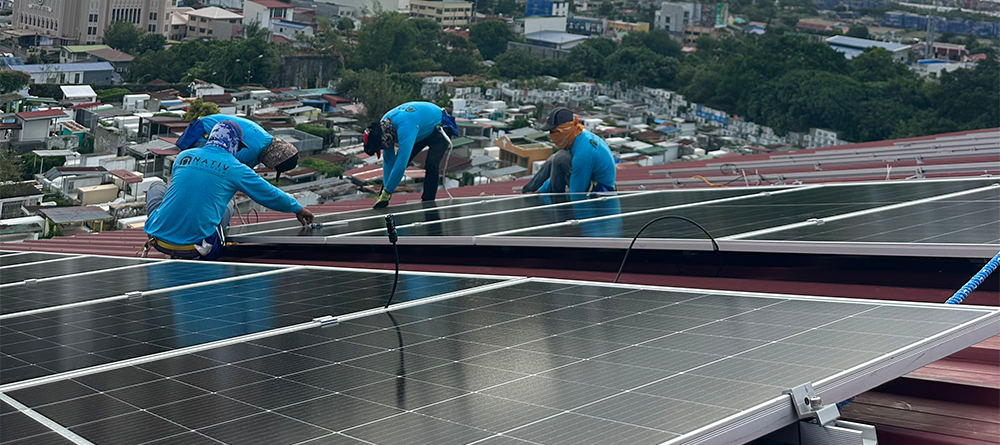Blog Highlight:- Learn top strategies to maximize your solar panels’ lifespan and efficiency. Ensure long-lasting and sustainable solar energy for your home.
In case you are thinking of investing in solar panels, then we assure you that you are making the right decision. Solar panels can give you a sustainable life while also contributing to the environment.
However, although solar panels are extremely durable, like any other piece of technology, you need to maintain them periodically to extend their lifespan.
To ensure this, it is essential to follow the best practices and strategies for its maintenance and care. In this blog, we have listed some effective strategies that will help you care for your solar panels in the best possible way. So, let’s have a look.
The Importance of Longevity
Solar panels generally have a lifespan of 25 to 30 years, and most reputed brands provide you with warranties that extend for 25 years at the least.
But this isn’t the only thing that matters, what comes next is its quality, installation, and ongoing maintenance, all of which play a vital role in the entire process. It is important to follow these procedures as in its absence, your solar panels may experience efficiency losses in its early stages.
Moving on, let’s look at some tips and tricks to extend the lifespan of solar panels for your home and maximize their efficiency for years to come.
Best Strategies for Extending the Lifespan Of Your Solar Panels
1. Routine Cleaning
Why should you clean your solar panels regularly?
Well, the answer to this is, that since dirt and debris may accumulate on your solar panels, it is required to clean them as these may block sunlight. This can restrict the panels from receiving and optimising optimal energy production.
Below are some suggestions to clean your solar panels.
- Use gentle tools: Avoid stiff brushes that can scratch the panels. Therefore, try using soft sponges or brushes.
- Mild cleaning agents: Your solar panels are vulnerable to harsh chemicals and substances; hence, use mild soaps and water to clean them effectively.
- Safety Precautions: If your panels are installed on the rooftops and accessing them could be risky for you, hire trained professionals who have been trained for such circumstances.
2. Regular Inspections
Being careful can hurt no one, which is why checking these panels for any signs of damage, such as cracks or loose connections, can help prevent severe damage in the future.
Your solar panels also require servicing at least once every year. This is to ensure that all components, including wiring and mounting structures, are in good condition. Just like you require a doctor to make sure your body is functioning properly, your solar panels also require checkups, which will ensure, identify, and fix the problems, if any.
3. Protection from Environmental factors
Since you cannot add a safety cover on top of your panels, make sure to install bird deterrents and regularly check for signs of rodent activity, as the presence of these animals can cause damage to your solar panels, further reducing their lifespan.
Also, although solar panels are designed to withstand various weather conditions, taking care of them can enhance their durability in the long run.
- Sealants: Use weather-resistant sealants to prevent water ingress.
- Protective Covers: You can use them during extreme weather conditions like hail storms and other extreme conditions.
4. Optimizing Installation
Installing your solar panels at a location that can capture the maximum amount of sunlight and minimal shading throughout the day is beneficial. This provides optimal energy production and reduces stress in the panels.
Also, hiring professionals to install the panels will result in mounting and positioning them efficiently for a long time. This is essential for the panel’s efficiency and longevity.
5. Upgrading System Components
Inverter Maintenance
The inverter converts the DC power generated by the panels into AC power for home use. Regular maintenance of the inverter is mandatory for the overall efficiency of the solar panels. One should also be careful about the need to replace the inverter to avoid any glitch in the system’s performance.
6. Warranty and Insurance
Knowing your solar panels is essential, therefore, consider familiarizing yourself with the warranty of your panels and follow the manufacturer’s maintenance guidelines to keep the warranty valid.
It would also be beneficial for you if you added solar panels to your home insurance policy. This would make sure to protect the panels against any damage from natural disasters, theft, and destruction.
8. Staying Informed
Updating yourself on the recent advancements in solar technology will help in making the right decisions which will improve the overall performance of the system.
Also, make sure to share your knowledge on solar energy and maintenance with others in your community.
Conclusion
Thus, you can ensure the safety and maintenance of your panels by following these strategies and investing in professional assistance to maximise the efficiency of your panels. Taking the time to maintain your solar panels will help in building a sustainable future while also contributing to your financial aid.
Thinking about going solar in the Philippines? Reach out to us at Nativ Techniks for expert advice and top-tier solar power solutions tailored to your needs.
Our dedicated team will guide you through the entire process, from consultation to installation, ensuring you get the most efficient and reliable solar system for your home. Start your journey towards sustainable living today and enjoy significant savings on your energy bills with Nativ Techniks.
Call us at +639176310032, or drop a mail at wecare@nativtechniks.com.
Also Read Our Other Blogs
Top 8 Most Trusted Solar Companies in the Philippines: A Comparative Analysis



Leave a Reply